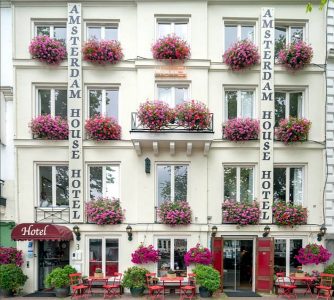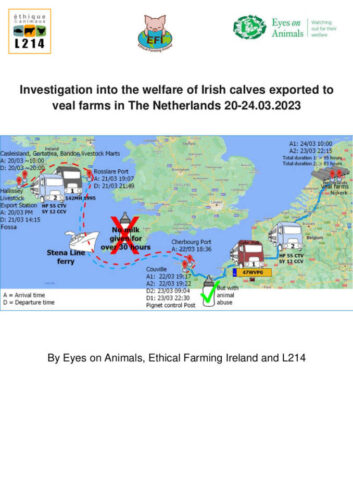 Investigation into the welfare of Irish calves exported to veal farms in The Netherlands, 20-24.03.2023
Investigation into the welfare of Irish calves exported to veal farms in The Netherlands, 20-24.03.2023
Investigations by Eyes on Animals, Ethical Farming Ireland and L214 reveal that young calves, imported from Ireland, are still kept on board of trucks for over 30 hours without giving them any milk. Not feeding unweaned calves for such a long period is in violation of Council Regulation 1/2005 which requires feeding after a maximum of 19 hours. At the control post in France the hungry and thirsty calves were routinely beaten, kicked and dragged by their tails and ears. Shame on the official authorities for approving these journeys and all the industry partners involved, such as VanDrie Group (owning the veal farms in The Netherlands), Irish Ferries and Stena Line – who are knowingly and willingly continue participating in this trade.
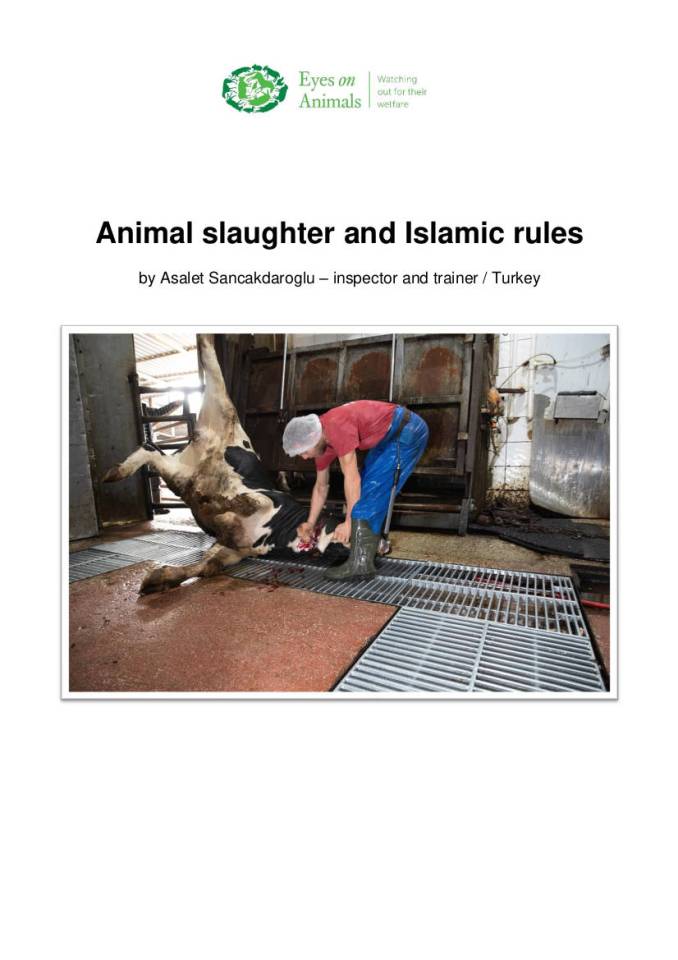 EonA published new essay on Islamic rules during slaughter (2022)
EonA published new essay on Islamic rules during slaughter (2022)
Asalet Sancakdaroglu, our inspector and trainer in Turkey, has spent many years working inside slaughterhouses in Turkey, trying to decrease animal suffering. He has also spent years studying the Koran and Hadiths. He has now written an essay (in English) on Islamic rules during slaughter and the beautiful intent of the Prophet Mohammed’s teachings on animal-welfare. Please read and share!
 Male goat-kids victim of growing goat-dairy industry (2020)
Male goat-kids victim of growing goat-dairy industry (2020)
In recent years Eyes on Animals has conducted extensive research into the welfare of male goat-kids. This as a result of an inspection in 2017 in which we found dozens of dead and weakened male goat-kids in a stable in Brabant. Our findings were not an incident: Minister Schouten reported in a letter to Parliament that 1 in 3 male goat-kids does not reach the slaughter age. Between 2017 and 2020 we inspected dozens of goat dairy and fattening farms, assembly points and livestock transports. We also spoke with various parties within the goat sector.
This report is a summary. The full report on the welfare of male goat-kids is currently only available in Dutch.
 Against heat stress (2019)
Against heat stress (2019)
(only available in Dutch)
Last summer we again saw many farm animals suffering from extreme heat stress while waiting on board stationary trucks outside of overful Dutch slaughterhouses. That is why, together with the national Dutch welfare organization “De Dierenbescherming” we wrote this report containing 10 action points to tackle heat stress in a structured manner. This report was sent to the Dutch Minister of Economic Affairs, the House of Representatives and the livestock transport and slaughter sector.
 Giving Milk a Good Shake- looking at better ways of producing dairy (2014)
Giving Milk a Good Shake- looking at better ways of producing dairy (2014)
This report is dedicated to the dairy farmers who had the courage to try out new ideas and stood up for the welfare of the animals they raise. You are the leaders in pushing industry to become a gentler one, and your passion for the animals on your farms is what we admire the most.
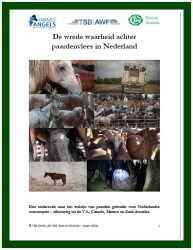 EonA Report The Cruel Reality behind horsemeat in The Netherlands (2014)
EonA Report The Cruel Reality behind horsemeat in The Netherlands (2014)
(material is available in English upon request)
Een onderzoek naar het welzijn van paarden gebruikt voor Nederlandse consumptie afkomstig uit de V.S., Canada, Mexico en Zuid-Amerika.
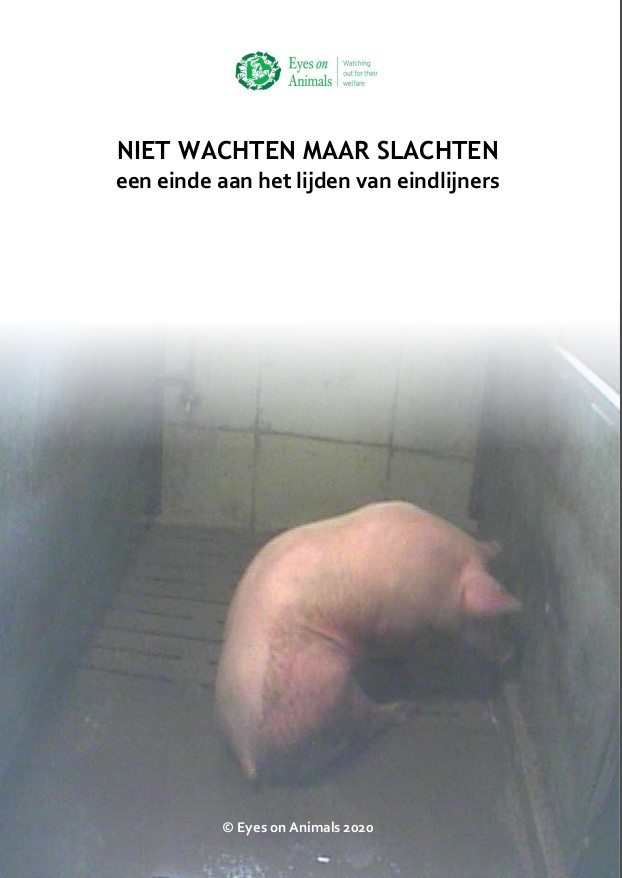 Niet wachten maar slachten: een einde aan het lijden van eindlijners (2020)
Niet wachten maar slachten: een einde aan het lijden van eindlijners (2020)
Er is een welzijnsprobleem in Nederlandse slachthuizen, waarbij sommige dieren veel langer moeten wachten dan andere om te worden gedood. Vaak vertonen deze dieren ook tekenen van ongemak en zelfs hevige pijn. Dit wachten veroorzaakt extra leed omdat een slachthuis nooit een rustige plek is om te wachten.
 Importance of Access during transport (2013)
Importance of Access during transport (2013)
This report looks into the importance of access during transport. It challenges the EU Commission and all EU Member State authorities, in particular the Dutch authorities for tolerating means of transport that do not provide access to animals. It is time that the rules regarding access were made clear and enforcement of them taken seriously.







